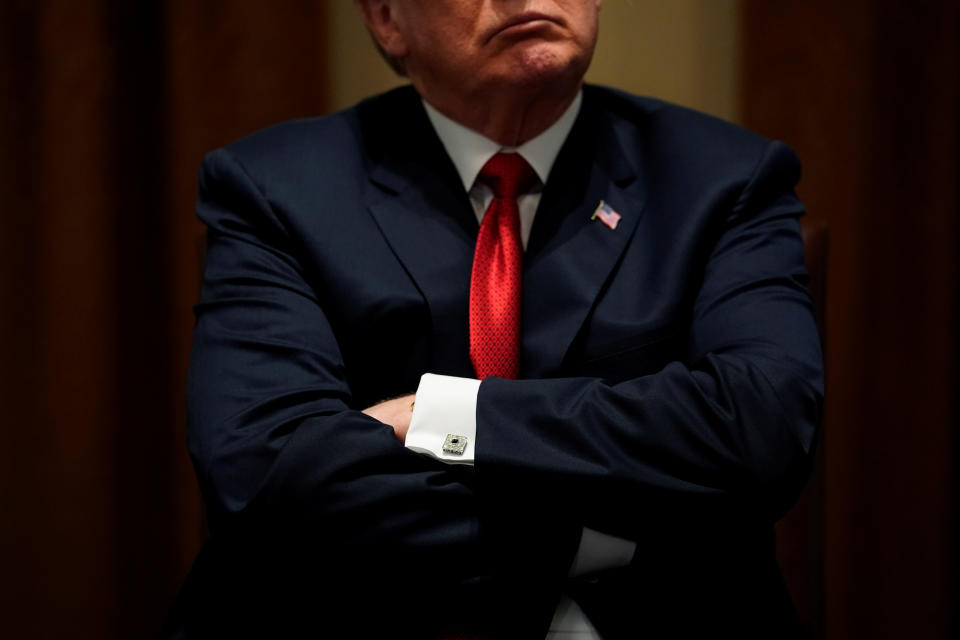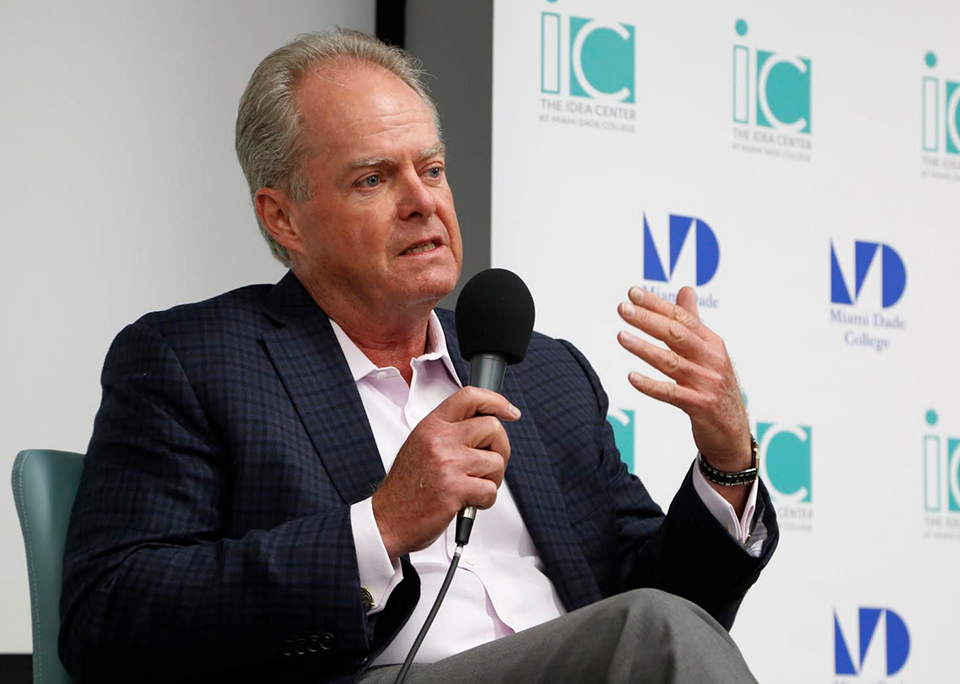Cuban-American tech pioneer: Trump's immigration stance is 'sad in two ways'

Cyxtera CEO Manuel Medina went from arriving in Miami from Cuba on a boat at the age of 13 to becoming an integral part of how the internet developed and how it is defended today.
Asked about the Trump administration’s efforts to curb immigration — which is now playing out in all three branches of government — the 65-year-old Cuban-American businessman lamented that the current rhetoric did not reflect the America he knows.
“I think it’s a travesty,” Medina, who became an American citizen on July 4, 1973, told Yahoo Finance in his Miami office. “Luckily my mother and father had the strength to put me and my sister on a boat. … This is what made this country. My story is not so unique.”
Medina said that the current cultural moment is “sad in two ways: It’s sad because we try to innovate. We want to bring in the most advanced minds in the world, we want to attract them here. And second, it’s sad in a way that we [immigrants] are hiding ourselves.”
A recent study found that 43% of Fortune 500 companies were founded by first- or second-generation immigrants. Overall, immigrants start businesses at about twice the rate as native-born Americans. Experts say that over time, President Donald Trump’s rhetoric and policies could threaten the boost immigrants bring to the economy.

“It sends a very powerful negative signal to the rest of the world: ‘Don’t come to the United States. We don’t want you,'” John Dearie, president of the Center for American Entrepreneurship, a nonpartisan group that supports immigration, told AP. “That’s terribly damaging.”
As a first-generation immigrant who built the infrastructure for delivering efficient internet to Latin America, Medina exemplifies the upside of providing opportunities to foreigners.
“I came here as a refugee with no money,” Medina, who sold his company Terremark to Verizon for $1.4 billion in 2011, said in 2009. “My mother was a hotel maid and my dad was a cab driver. … You have to have thirst as an immigrant to succeed.”
Medina noted that his son, Manuel Medina Jr., is living a version of the American dream as the bassist for Nashville-based country music star Kip Moore.

“How many Cuban-American kids are big ass country singers in Nashville?” Medina told Yahoo Finance. “He started out behind the chicken wire in the honky tonk bars. It’s all about giving our very best to our country.”
Medina added: “I’m telling you from an immigrant’s point of view: I love this country. It’s home. There is nothing that I would not do for it. And I think that same feeling permeates throughout the immigrant community.”
Follow Michael B. Kelley on Twitter @MichaelBKelley.
Follow Yahoo Finance on Facebook, Twitter, Instagram, and LinkedIn.
READ MORE:

